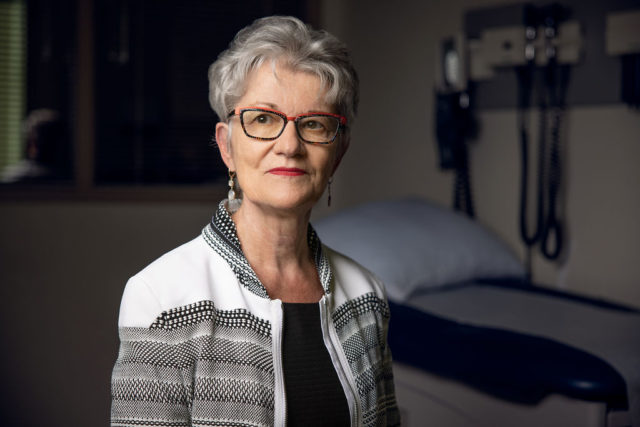Dr. Irene Hramiak isn’t ready to say they’ve found a cure for a Type 2 diabetes just yet. But the renowned endocrinologist and her collaborators are developing new treatments that may force the disease into remission, and for now, she’ll take it.
A professor of endocrinology and metabolism at Western’s Schulich School of Medicine & Dentistry and a doctor at St. Joseph’s Health Care London, Hramiak has led or co-led more than 50 clinical research trials for people whose lives have been altered instantly by a diabetes diagnosis.
Ordinarily, doctors prescribe lifestyle changes, such as diet and exercise, until the disease progresses and additional medications are added – ultimately, to the point where insulin is required. Hramiak’s trials explore whether it’s possible to ‘reset’ the pancreas from the beginning – to slow down the progression – by starting with an intensive course of insulin and medications at the outset, in addition to conventional lifestyle changes.
“We’re seeing if we can cause a remission – we can’t call it a cure – in people who are newly diagnosed by changing the way we treat the disease from day one,” explains Hramiak.
The research is collaborative and cumulative, and Hramiak says even trials that don’t meet the desired results are considered a success.
“You have to keep asking the questions and keep doing the work. It’s bit-by-bit, step-by-step, and everybody adds their piece to the puzzle,” she says.
Interlocking steps
Greg Ackland added one of the pieces.
With a family history of diabetes, Ackland knew his turn wasn’t a matter of if, but when. So when he was diagnosed with Type 2 diabetes in his forties, he was already prepared for what was to come. Over the years, Ackland watched his family members’ disease progress and their reliance on medications and insulin steadily increase.
“I couldn’t see any way out,” he said. Enter Dr. Hramiak.
Ackland enrolled in one of her clinical trials, and his treatment – and more importantly, his outlook – changed. Hramiak’s game-changing approach to treatment put Ackland’s disease into remission, completely eliminating the need for any diabetes medication for more than a year after the trial ended.
“If I was offered a chance like that again, I would jump at it,” he says. “I know that by being involved in research, it’s benefitting others, and advancing the care of diabetes.”
